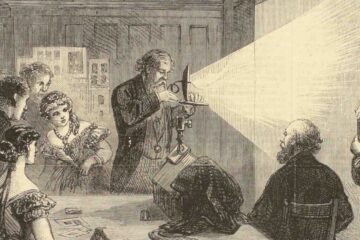Nature Exposed: Photography as Eyewitness in Victorian Science. Baltimore: Johns Hopkins University Press, 2006 (paperback, 2013).
In the late nineteenth century, new applications of photography sparked a complex debate about scientific practices and the value of the photographic images in the production and dissemination of scientific knowledge, from medicine and geology to meteorology, astronomy, and spiritualism. Recovering the controversies and commentary surrounding the early creation of scientific photography and drawing on a wide range of new sources and critical theories, Nature Exposed explores the rich visual culture of Victorian science and alternative forms of knowledge at the threshold of vision, including psychical research.
“The strength of the book lies in Tucker’s analysis of the broad historical context in which scientific photography emerged in Victorian Britain.” — Science
“A pioneering study of the establishment of the photograph as an accurate representation of nature which is based on thorough scholarship combined with imaginative insight. Tucker ranges across a breathtaking array of scientific fields, including meteorology, microbiology, and astronomy, while throwing new light on the scientific amateur, spiritualism, gender, visual culture, imperialism, and Victorian popular culture.” — Bernard Lightman, York University
“Tucker’s book is a challenging exploration of how, when, and under what conditions photography came to be seen as an enhanced representational tool for a range of scientific practices in Victorian Britain.” — Ian Burney – American Historical Review
“Nature Exposed tells us about our past, but has current resonance in our visually based culture and is a timely, interesting, and valuable book.” — Frances Robertson – Technology and Culture
“This extraordinarily rich study constitutes a landmark in writing about the relations between photography, science, and ideas of truth. Its use of nineteenth-century journal sources, too often overlooked by historians, to extrapolate the complex and nuanced negotiation of truth values invested in photography, not only allows a clear nineteenth-century voice to emerge, but provides us with an invaluable model for further studies.” — Elizabeth Edwards, University of the Arts London
“A useful book.” — Daniel M. Fox – Nuncius
“Tucker’s brilliant study enlarges traditional concepts of photographic evidence by tying together the social processes and institutions that created the scientific photograph to the shift in the professional development of science itself.” — Marta Braun – Victorian Studies
“The premise and the methodology of the book are sound, and its conclusions important.” — Kelley Wilder – History and Philosophy of the Life Sciences
“Meticulous at every turn, Nature Exposed on nearly every page contains a paragraph that would, on its own, be a superb subject for a doctoral thesis—postgraduates take notes. For the rest of us, it is an impressive, long-overdue critical companion to the early history of scientific photography in Britain that leaves few stones unturned. It is also an enjoyable read, as it delves into some of the quirkier and more entertaining chapters in photographic history.” — British Journal for the History of Science
“By examining a wide range of books, articles, and photographs, Tucker writes a history of photography that skilfully maps out the social and professional networks that connected science and photographic practices.” — Mary Hunter – Oxford Art Journal
“As Jennifer Tucker argues in this densely researched book, evaluating evidence involves social values—class, gender, and race—as well as scientific protocols.” — Patrizia Di Bello – Bulletin of the History of Medicine
“A solid and very readable work of scholarship, drawing widely upon periodicals and other neglected print sources, and happily enhanced with reproductions of the many compelling and curious images that it has uncovered and analyzes.” — Daniel Brown – Journal of British Studies


0 Comments